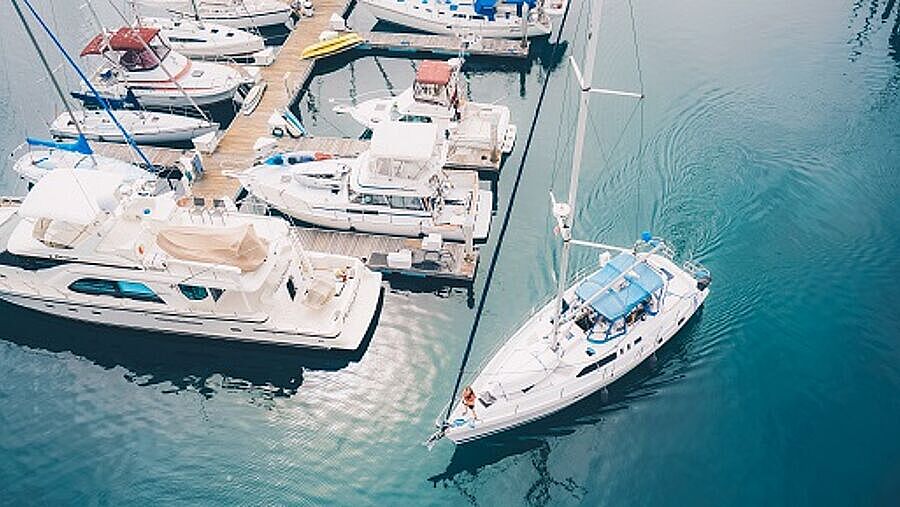
* Pantaenius UK Limited is authorised and regulated by the Financial Conduct Authority (Authorised No.308688)
Surprisingly, there is no compulsory insurance for sailing or motor yachts in Germany or in many other European countries. Nevertheless, there is more than one good reason to protect yourself against liability risks and the loss of your investment. However, what is there to consider when an insured boat is sold and changes hands? Does cover for the vessel continue in the event of a sale? Does the existing policy have to be cancelled and if so, by whom? Gunnar Brock, legal advisor and authorised signatory at Pantaenius, clarifies the most important questions.

No, the boat’s insurance automatically passes to the new owner. This regulation applies to the boat liability insurance and the boat hull insurance.
When a boat is sold, the insurance provider reimburses the former owner for the excess premium paid pro rata, i.e. to the day. So if a boat is sold six months before the next due date and the policy is cancelled accordingly, the former owner will receive half of the paid premium back.
The seller and buyer are obliged to notify the insurer of the sale immediately. It is important that the insurer is informed of the names and addresses of both parties in the contract.
No, the buyer has an immediate right of termination by acquiring the boat.
No. The insurance company does have a special right of termination, but with a transitional period of one month. This is to give a new owner enough time to take care of his or her own insurance requirements and contract.
The new insurance should become active with the transfer of ownership. This is usually at the time when the boat is handed over. It is advisable to document the specific time for the transfer of ownership in the purchase contract.
New series-produced boats are usually insurable without the presentation of special documents, because specialised providers can accurately assess the value of the boat. Exceptions apply to older boats, classics, elaborately equipped cruising yachts or self-built boats. In such a case, evidence describing the condition of the boat and documentation supporting it, such as invoices and photos, will be necessary. Sometimes an appraisal by an expert may also be required.
As a rule, you should do well with coverage of ten million euros, both at home and abroad. Italy, for example, requires a minimum coverage of 7,230,000 euros. In certain cases, coverage of up to 15 million euros may also make sense.
Since there is no compulsory insurance for boats, without hull insurance you run the risk of being stuck with damage caused by other boat owners. It is not always possible to establish that the other party was at fault in the accident so having your own insurance cover really is important. Since the principle of fault-based liability applies in water sports, there is no chance of compensation in this case without boat hull insurance. Hull insurance also applies in the event of fire, lightning, burglary or storm. Unfortunately, the dangers of winter storage are often underestimated, as recent examples of fires have shown.
There are many surprises hidden in the small print. Anyone new to boating or boat insurance should make sure that everything they expect to be insured, really is insured. It’s important to check whether other aspects, such as a dinghy and the outboard motor, are insured as well as the boat. And, insurance should be taken at a fixed, indisputable rate based on the new value. Many providers advertise with similar terms, but weaken the coverage considerably with subordinate clauses. It is also important that no deductions are made for partial damage, i.e. the damage is compensated according to the principle of new for old.